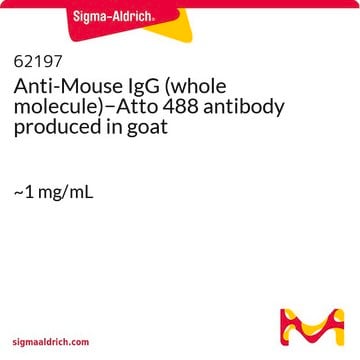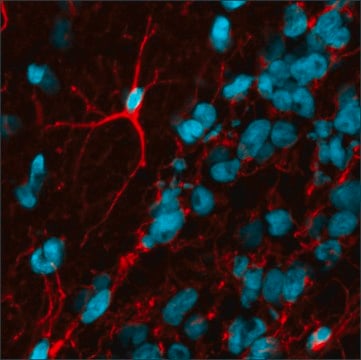SAB4600399
Anti-Rabbit IgG (H+L), F(ab′)2 fragment, CF™640R antibody produced in goat
~2 mg/mL, affinity isolated antibody, buffered aqueous solution
About This Item
Recommended Products
biological source
goat
Quality Level
conjugate
CF™ 640R conjugate
antibody form
affinity isolated antibody
antibody product type
secondary antibodies
clone
polyclonal
form
buffered aqueous solution
species reactivity
rabbit
concentration
~2 mg/mL
technique(s)
flow cytometry: 1-10 μg/mL
immunocytochemistry: suitable
immunohistochemistry: suitable
indirect ELISA: suitable
indirect immunofluorescence: 1-10 μg/mL
western blot: suitable
fluorescence
λex 642 nm; λem 662 nm
storage temp.
−20°C
target post-translational modification
unmodified
General description
Specificity
Immunogen
Features and Benefits
Physical form
Preparation Note
Legal Information
Disclaimer
Not finding the right product?
Try our Product Selector Tool.
Storage Class Code
10 - Combustible liquids
WGK
WGK 2
Flash Point(F)
Not applicable
Flash Point(C)
Not applicable
Certificates of Analysis (COA)
Search for Certificates of Analysis (COA) by entering the products Lot/Batch Number. Lot and Batch Numbers can be found on a product’s label following the words ‘Lot’ or ‘Batch’.
Already Own This Product?
Find documentation for the products that you have recently purchased in the Document Library.
Our team of scientists has experience in all areas of research including Life Science, Material Science, Chemical Synthesis, Chromatography, Analytical and many others.
Contact Technical Service






